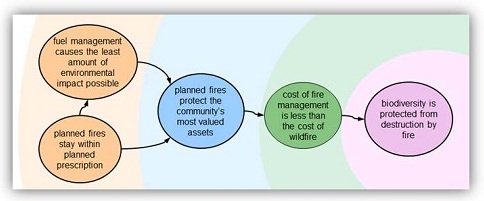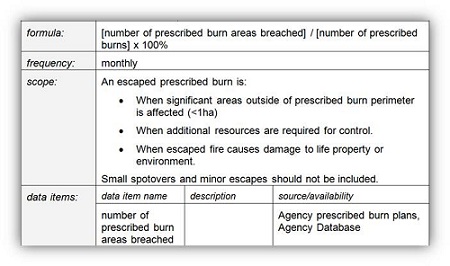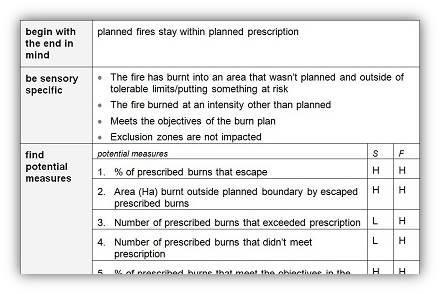How to document the rationale for your choice of KPIs
by Stacey Barr |Questions like “Why did you choose that KPI?” and “Why didn’t you choose this KPI?” and “What were we thinking?!” shouldn’t be answered with “Um, I dunno!”
Without discipline, lots of things can get out of control. Our weight, our diaries, our addictions, our homes, our children. And without disclipine, performance measurement gets out of control too.
Part of the discipline needed to make performance measurement a successful and productive use of time is to document your decisions along the measurement process. An ounce of prevention is worth a pound of cure!
Document your interpretation of the performance results implied by your goals and objectives.
Unless you have a very clear, unambiguous understanding of the goals or objectives you need to measure, before you look for measures, you’ll end up with irrelevant or weak measures.
Document the specific performance results implied by each of your goals or objectives, using very clear and specific and uncomplicated words.

Document your measure design and selection decisions.
It’s too easy to jump to brainstorming measures and just pick the most popular ones, or those easiest to measure.
Document the potential measures that you consider for each performance result, along with your ratings of relevance to the result and feasibility to implement, and how those ratings were used to select your final measures.
Document your measure implementation rules.
Don’t leave it to chance. If you allow room to make assumptions about how to calculate your measures, which data to use, and how to interpret it, you have almost guaranteed you won’t be measuring what you intended.
Document all the necessary details to make it crystal clear to analysts exactly how they should bring each measure to life.

TAKE ACTION: Make sure you have a way to document your interpretations of the performance results implied by your goals, the range of potential measures you considered, how you chose the final selection of measures, and how each selected measure should be implemented. With PuMP, we do this by using 3 templates: the Results Map, Measure Design tables and Measure Definition dictionaries.
Connect with Stacey
Haven’t found what you’re looking for? Want more information? Fill out the form below and I’ll get in touch with you as soon as possible.
167 Eagle Street,
Brisbane Qld 4000,
Australia
ACN: 129953635
Director: Stacey Barr





